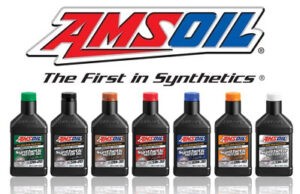What Is Synthetic Motor Oil?
What is synthetic motor oil and why use it?

This article will discuss what synthetic motor oils are, how they’re made, and why they’re a popular choice for many drivers. Synthetic oils are the best choice for those who want to extend their engine’s life because of their chemical properties that make them more resistant to breakdowns. New generation synthetic oils also have better performance qualities than other types of oils.
Motor oil is one of the most important components of your car. A new car can run for up to 10,000 miles before it requires synthetic motor oil, but if you go past this mileage without changing the oil, the engine will start to break down and eventually die. This is because, with time, motor oil deteriorates and becomes diluted with sand and dirt particles that accumulate during engine use.
What does synthetic oil do?
Synthetic oils are made from synthetic base materials which can withstand higher heat and pressure in engines. Synthetic motor oil typically has a higher viscosity in the cold to protect against cold-start wear. Synthetic oils also have much lower volatility which helps prevent engine deposits from forming because of the long service life of the engine.
Motor oil lubricates and cools your engine by preventing metal-to-metal contact and reducing the friction on moving parts. Synthetic or synthetic blend motor oil can be an excellent choice for many motorists as they offer superior performance to conventional motor oils. They are created from petroleum distillates, such as naphtha, gas, and kerosene, that include additives to provide better lubrication and corrosion protection than conventional motor oils.
When you need to change the oil in your car, the kind that you buy is an important decision. There are many different types of oils on the market, but one of the most common choices people make is synthetic motor oil. Synthetic oils are much more expensive than regular motor oil, but one of their advantages is that they last longer.
The differences between conventional and synthetic oils
Oil is an essential part of any engine, but what type of oil should be used? Conventional motor oils are made from natural crude oil found on the earth. Synthetic oils are produced synthetically. There are many differences between conventional and synthetic oils that cannot be seen just by looking. Some of the major differences include viscosity which affects how quickly an oil will flow or leak out, and polymers which affect how well the oil will protect the engine.
What are the benefits of using synthetic oil?
These days, synthetic motor oil is a standard recommendation by automotive experts. Synthetic motor oil is designed to last longer and does not break down as quickly as conventional motor oil. Synthetic oils also do not contain those additives that increase the risk of engine wear. In contrast, they contain those additives that maintain engine life and performance. This can help reduce repair costs and save you money in the long run.
There are many benefits to using synthetic oil. It can increase horsepower, improve fuel economy, and even extend the life of your car. One benefit is its ability to reduce friction between moving parts in your engine – this reduces heat and prolongs the life of your engine. Another benefit is that it can help reduce emissions by over 40%.
What is synthetic oil made from?
Synthetic motor oils are made from a chemical mixture of petroleum and synthetic materials. This mixture is produced by refining crude oil to create a base stock for making more complex products. The base stock is then chemically processed with other chemicals to produce the desired product, such as synthetic motor oil. For example, a company might take a base created from refining crude oil, combine it with additives for better performance, and then heat it up to form a liquid.
Synthetic oil is made from a variety of ingredients, depending on what additives are added. Generally, the base stock of the lubricant is derived from petroleum and processed to remove impurities. Additives include lubricity enhancers, extreme pressure additives, antiwear additives, and antioxidants which all come in various forms such as esters, acetates, or polymers.
In conclusion, synthetic oil is made from various chemical compounds and petroleum refining. These synthetic oils are specially designed to be more temperature tolerant than conventional oils, which is why they are popular in colder climates. Synthetic motor oils also contain higher quality additive packages than their conventional counterparts, so they offer better protection for your engine at the same time as lasting longer.

If you are deciding to change to synthetic motor oil, then we recommend using AMSOIL!

